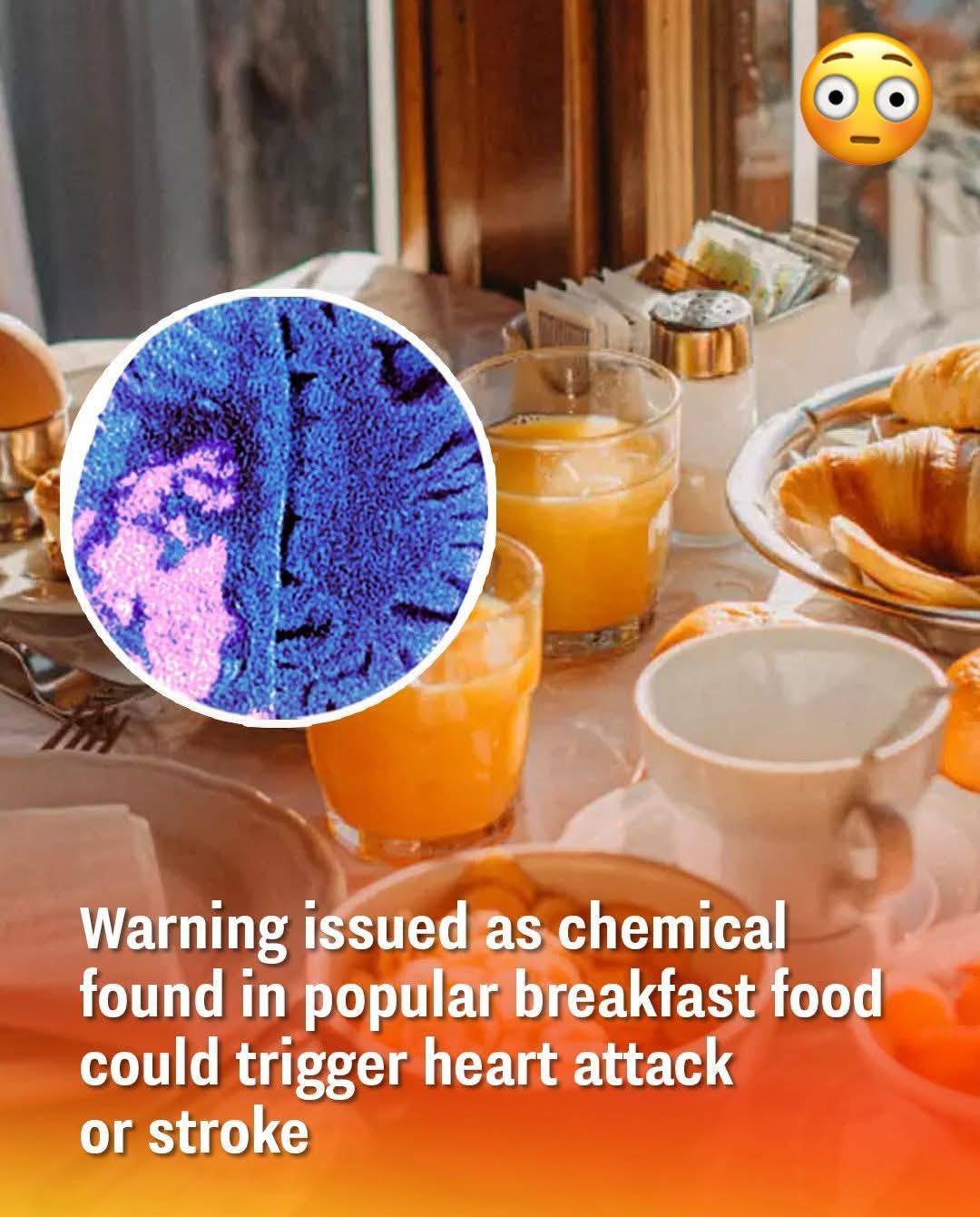Chemical in Popular Breakfast Food May Increase Heart Attack and Stroke Risk
Researchers have connected a chemical in breakfast foods to a higher risk of heart attack and stroke, which has sparked concerns. A recent study found that acrylamide, a chemical produced during cooking, may increase the risk of these cardiovascular emergencies by as much as 60%.
Data from more than 100,000 people in dozens of studies conducted since 2007 were examined by Spanish researchers. According to their research, which was published in the Nutrients journal, acrylamide consumption is linked to an increased risk of cardiovascular events and deaths from heart attacks and strokes.
What is Acrylamide? When starchy foods like bread and potatoes are heated through methods like baking, frying, or roasting, acrylamide, a chemical found in breakfast foods, is created. Many people who eat toast for breakfast every day are concerned about the high levels of acrylamide found in burned carbohydrates, such as overly toasted bread.
According to the study, the risk of cardiovascular death rose by 33% to 66% in diets with higher exposure levels to acrylamide. The risk was even higher for vulnerable groups, such as those at risk for type 2 diabetes, which showed an 84% increased risk of cardiovascular death.
What Is the Acrylamide Content of Your Food?
According to RMIT University professor Oliver Jones, there are roughly 4.8 micrograms of acrylamide in a typical slice of toast. Acrylamide intake varied from 32.6 to 57 micrograms per day across the examined studies, with adverse cardiovascular effects noted at the higher end of the spectrum.
Exposure to acrylamide is not limited to highly processed foods; it can also occur in meals prepared at home or in restaurants, even when using contemporary techniques like air frying. As a result, the food industry now prioritizes lowering acrylamide production.
Limiting Exposure to Acrylamide
Experts advise avoiding foods that are burnt or excessively browned in order to lower acrylamide intake. When toasting bread or frying potatoes, the NHS advises aiming for a “golden yellow” color.
According to Cambridge University’s Sir David Spiegelhalter, acrylamide consumption in moderation is unlikely to result in immediate harm. For a severe effect, he said, one would have to consume 160 burnt slices of toast every day. Following recommendations to reduce exposure is still a wise course of action, though.





